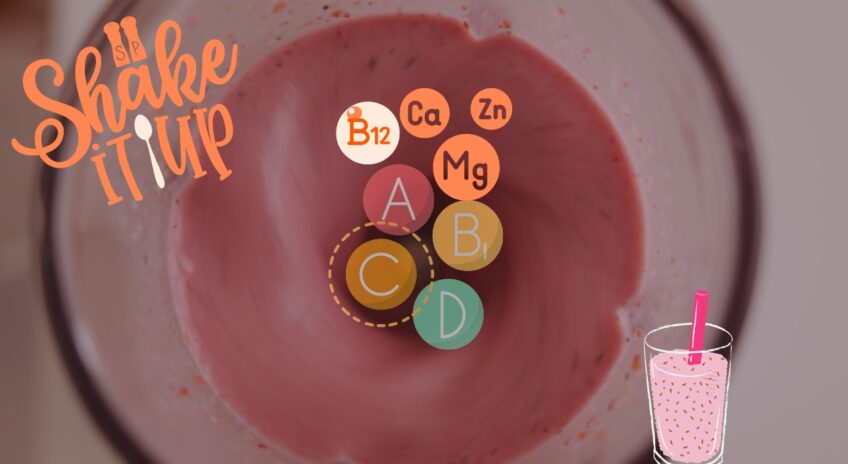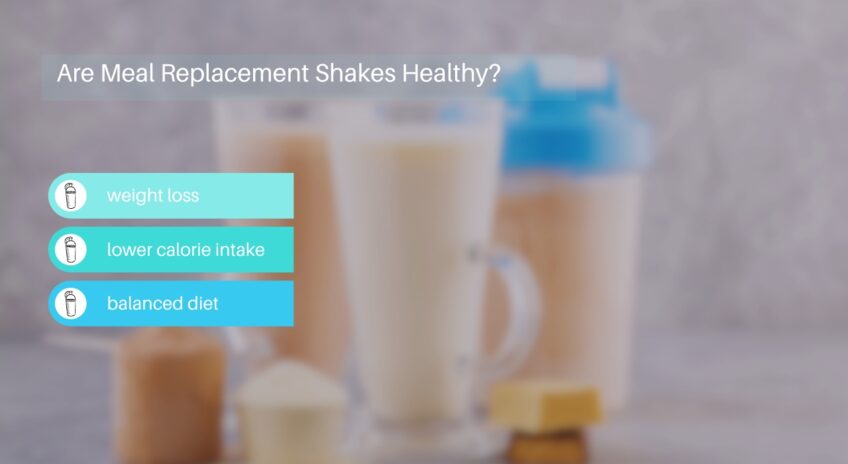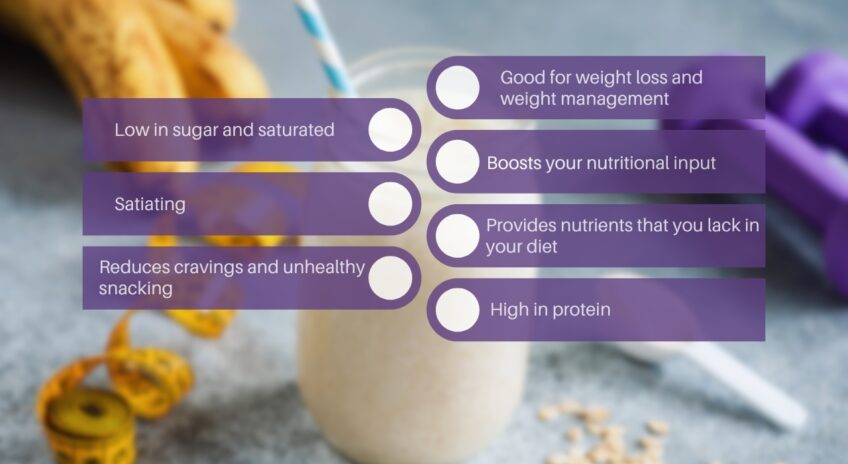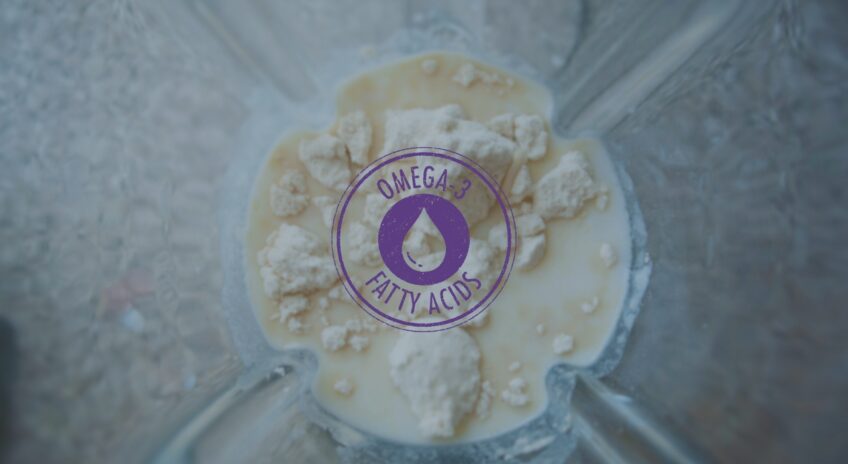Herbalife, Slimfast, and Atkins are brands that we’ve all heard about at some point. They are the most recognizable brands in the meal replacement industry, and yet a few of the worst offenders when it comes to portraying what a current meal replacement shake is.
Initially, meal replacement shakes were designed for weight loss, and even proved to be fairly efficient at doing so. However, the modern meal replacement brands – Soylent and Huel leading the charge- aim to help you replace meals in a healthy and convenient manner.
They aim to provide you with “complete nutrition”. This is, all the fiber, fats, carbs, and protein your body needs, as well as, vitamins and minerals in one single drink (or bar). So are these new meal replacements healthy? Is this new evolution of meal replacement shakes safe to consume and how can it benefit your health?
These are some of the topics we’ll try to answer by looking at scientific evidence, nutritionist opinions, and expert feedback.
Page Contents
What Are Meal Replacement Shakes?

Meal replacement shakes are food that comes in a powder format. They are typically composed of high-quality proteins, carbohydrates, and other essential vitamins and minerals. Meal replacement companies use government guidelines and the latest scientific literature to design their products.
Ultimately, their aim is to provide a balanced meal in a convenient form that can be consumed quickly and easily. On top of that, the most nutritious meal replacement shakes can also contain natural ingredients like fruits and vegetables that are low in calories but high in essential nutrients.
These will be rich in antioxidants, anti-inflammatory agents, and other chemical compounds that are mostly found in leafy greens and vegetables. Check latestfuels.com for more information about healthy meal replacement options.
Are Meal Replacement Shakes Healthy?

Scientific Evidence Says Yes
Scientific research in the field of meal replacement shakes has mostly been done looking at weight loss. Since the 1980s there have been numerous studies showing that meal shakes can be an effective tool to help overweight people lose weight in both the short and long term.
Unfortunately, there’s less data on long-term meal replacement diets for healthy individuals. That said, a study sponsored by Huel – a meal replacement company- found that most blood markers improved after a 30-day 100% meal replacement-only diet.
These findings are very positive, but more independent studies should be carried away to further increase our understanding of the long-term effects.
Expert Opinion on Meal Replacement Shakes

According to dietitian Nichola Ludlam-Raine, meal replacement shakes can be beneficial for individuals who want to lower their calorie intake and simplify their meal planning. Ludlam-Raine explains that these shakes are designed to provide carbohydrates for energy, protein for repair, healthy fats, dietary fiber, as well as vitamins and minerals.
However, she emphasizes that meal-replacement shakes should not be the sole source of nutrition and may require supplementation or the inclusion of regular meals and snacks.
Dr. Anjali Hooda, an advanced metabolic and functional medicine specialist, considers meal replacement shakes safe and healthy, especially for medical reasons. However, she advises caution in choosing the right meal replacement supplement by reading the ingredients list and conducting preliminary research.
Meal Replacement Shakes but in Moderation
Most nutritionists and dietitians agree that meal-replacement shakes are best when incorporated into a balanced diet. While they offer undeniable convenience and can provide invaluable nutritional input to our diets, 100% meal replacement shakes can be dangerous.
It’s best to use them to replace one or two meals a day at max, and consume whole-food nutrient-rich meals, otherwise. One of the reasons for that is that you might be missing nutrients that are non-essential but have a vital role in a healthy body (antioxidants, inflammatory agents, digestive enzymes…).
For instance, according to Dr. Watson from Center TRT, “digestive enzymes play a crucial role in our digestive system, helping to break down the foods we eat and absorb essential nutrients”.
Digestive enzymes (lipase, amylase, bromelain) are mostly present in fruits and vegetables (pineapple, kiwi, mango…), and are not in most meal replacement shakes. You can look for added digestive enzymes on the label to see if they contain any.
Health Benefits of Meal Replacement Shakes

So what are the health benefits of taking meal replacement shakes?
- 1. Good for weight loss and weight management
- 2. Boosts your nutritional input
- 3. Provides nutrients that you lack in your diet
- 4. High in protein
- 5. Low in sugar and saturated
- 6. Satiating
- 7. Reduces cravings and unhealthy snacking
One of the most proven applications of meal replacement shakes is weight loss and weight management. As previously mentioned, there have been dozens of studies that have proven meal replacement shakes to be an effective tool for weight loss. They can also help you manage your weight since you are able to easily count your calories.
Plus, the shakes are surprisingly filling, thanks to the high protein content that decreases ghrelin levels reducing your appetite. Fiber is also a key component in this process, and most meal replacement shakes are extremely rich in it.
Furthermore, meal replacement shakes can also boost your nutrient intake. Nutrients like vitamin D or omega-3s which are lacking on Western diets are found in abundance in meal replacement shakes.
Taking meal replacement shakes can also help to improve overall health by boosting metabolism, increasing muscle mass, improving digestion, reducing inflammation and supporting healthy cholesterol levels.
The Cons of Meal Replacement Shakes
Therefore, are meal replacement shakes always the healthy option? No, there are still some drawbacks to meal replacement shakes:
- Low-quality brands will be full of processed ingredients
- You will not get as many phytonutrients
- Might miss chewing food
- Can have too many artificial sweeteners
Most of the negatives associated with meal replacement shakes when it comes to health are two-fold:
First, they are low-tier brands that have nutritionally subpar products. You can identify them by looking at the ingredients list (maltodextrin, syrups, oligosaccharides…) or looking at the sugar content.
Secondly, it’s harder to get antioxidants, anti-inflammatory agents, and other phytonutrients often found in vegetables and plants.
Some nutritionists also remark that chewing is important for digestion and that no chewing can make you feel less full, among other things.
What is The Healthiest Meal Replacement Shake?

Ultimately, that will be a very personal choice. However, here are a few guidelines to look out for:
- Look for meal replacement shakes with whole-food ingredients
- Avoid diet brands like Slimfast, Atkins or white-label brands
- Make sure they contain a source of omega-3
- They should include at least 20% of your daily values for all vitamins and minerals
- The best meal replacement shakes offer complete nutrition without having to add milk (just water)
- If possible, look at the Nutriscore (should be A)
Conclusion
Ultimately, the answer to the question are meal replacement shakes healthy is simple.
Yes. In particular when you take them as part of a balanced diet with plenty of whole foods, vegetables, and fruits.
They can be extremely useful to improve your meals while you are on the go, help you prevent snacking, and even boost the intake of key nutrients that are lacking in our diets.
That said, most brands and nutritionists agree that they shouldn’t be the sole source of nutrition. There’s still a lot we don’t understand about nutrition and you could be missing out on key nutrients (digestive enzymes, antioxidants, etc).
Furthermore, it’s of utmost importance to look at the label of any meal replacement you buy, since not all are created equal. The best meal replacement shakes will have all the essential nutrients, and won’t rely on syrups, sugars, or milk to make them complete.
Also Read:
- 9 Best Meal Replacement Supplements for Diabetics -…
- AIP Diet Meal Plan – What I Eat In a Day?
- How Long Do Tamales Last - Your New Favorite Leftover Meal
- Major Side Effects OF Eating Too Many Blueberries -…
- Fruit That Starts With H - Healthy Letter Diet
- Perfect Gifts for Healthy Eaters: Ultimate Gift Idea Guide















